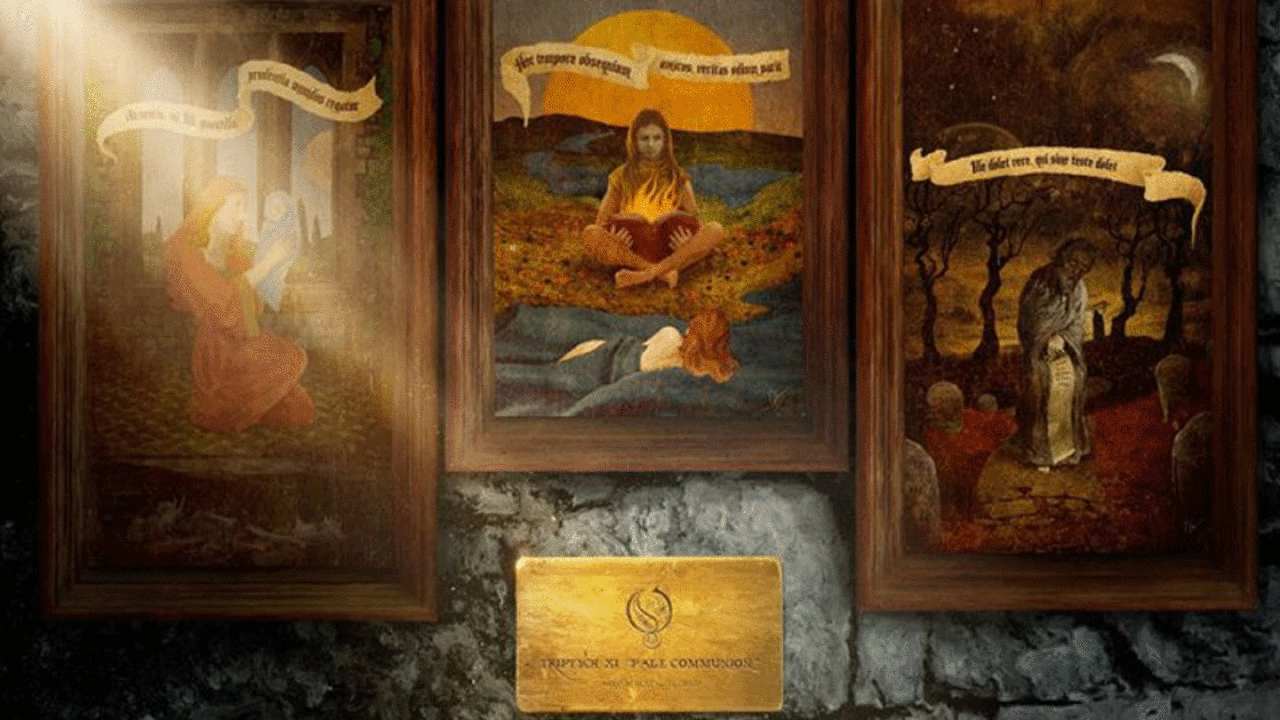You can trust Louder
’Tis a strange but beautiful thing – the sound of Swedish Beelzebub, and his fellow monsters of thinking-man’s metal, going ‘prog’. Following their conception on death metal terms, Opeth have been veering down increasingly progressive paths ever since. Spectacular works like My Arms, Your Hearse and Blackwater Park transformed the possibilities for fresh-from-Hell death vocals, teaming them with exquisite atmospherics and inventive shades of metal.
2011’s Heritage moved further away from the metal world (to mixed reception), and now Pale Communion soars right into prog land. Death vocals are gone. Majestic, contemporary, King Crimson-echoing prog takes it place. A worthwhile venture? Oh yes. It’ll come as no surprise to learn that Steven Wilson mixed this (he also mixed Heritage). He and Åkerfeldt have collaborated via Opeth, Porcupine Tree and their duo project Storm Corrosion, among other avenues. And the mutual influence they’ve exchanged over the years is evident on Pale Communion.
Anyone familiar with Wilson’s solo work especially will recognise the ‘lonely Swede’ guitar tone in the likes of Elysian Woes, while the delicate acoustic trickles that appear across the record will strike chords with Opeth and PT fans alike. But the delicacy and absent death vocals haven’t left Opeth without nuts. Nor have the orchestral strings, grandly but smoothly linking various points. Menacingly minor nu-prog progressions and mighty guitar chops add colour and weight to the likes of Moon Above, Sun Below. It all generates a brooding, lavish environment for the carefully crafted tunes present – clearly something Åkerfeldt and co have focused on.
Probably the most enchanting aspect of Pale Communion is its mood shifts. Wilson has observed that prog rock is wonderful in its capacity to not fall into simple ‘happy song’ or ‘sad song’ categories. While every song here has a definite soul, the twists, turns, small swerves and sharp jolts they take you through are compelling. River, for instance, begins as a prettily harmonised, unplugged piece, growing in stature via sublime classic rock guitar melodies, before jarring into a brooding prog-metal tangent.
So yes, the new prog age of Opeth hath cometh. Mourn their death metal farewell, if you will, in moments where your inner ‘old-school Opeth’ fan anticipates some crunch. But more importantly, relish the result of an intelligent, engaging act taking a new stand. Captivating stuff.
Sign up below to get the latest from Classic Rock, plus exclusive special offers, direct to your inbox!

Polly is deputy editor at Classic Rock magazine, where she writes and commissions regular pieces and longer reads (including new band coverage), and has interviewed rock's biggest and newest names. She also contributes to Louder, Prog and Metal Hammer and talks about songs on the 20 Minute Club podcast. Elsewhere she's had work published in The Musician, delicious. magazine and others, and written biographies for various album campaigns. In a previous life as a women's magazine junior she interviewed Tracey Emin and Lily James – and wangled Rival Sons into the arts pages. In her spare time she writes fiction and cooks.

